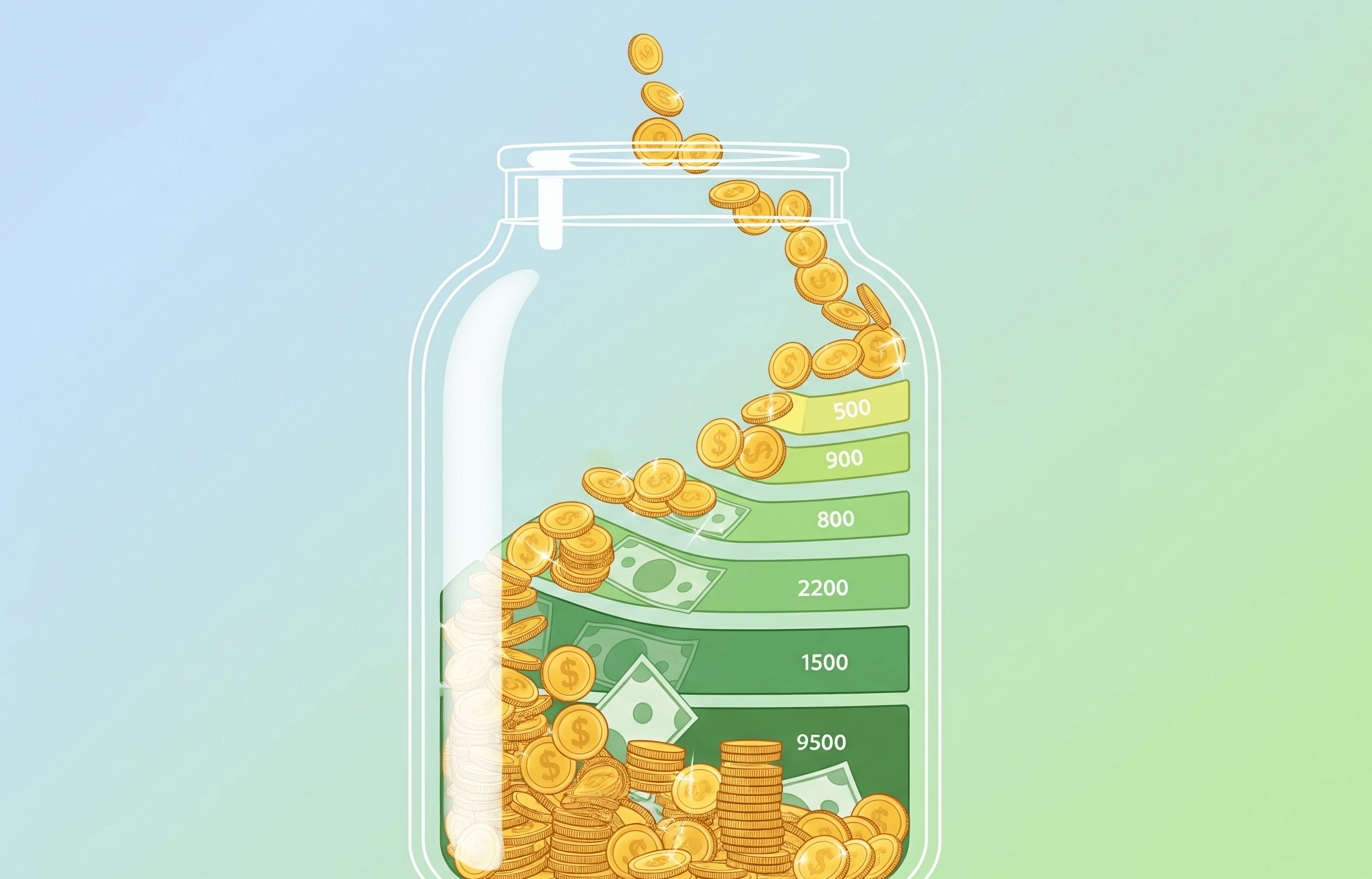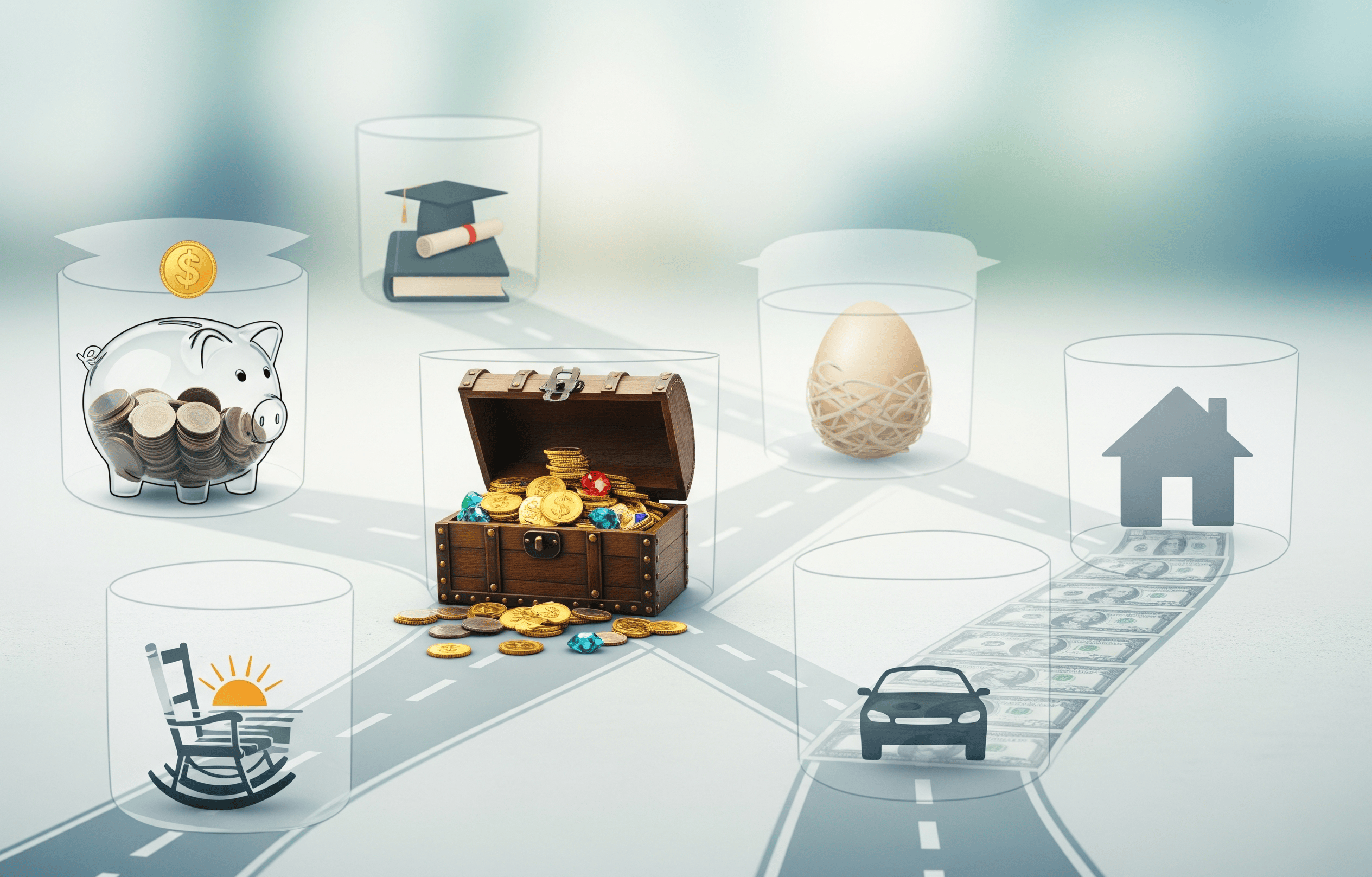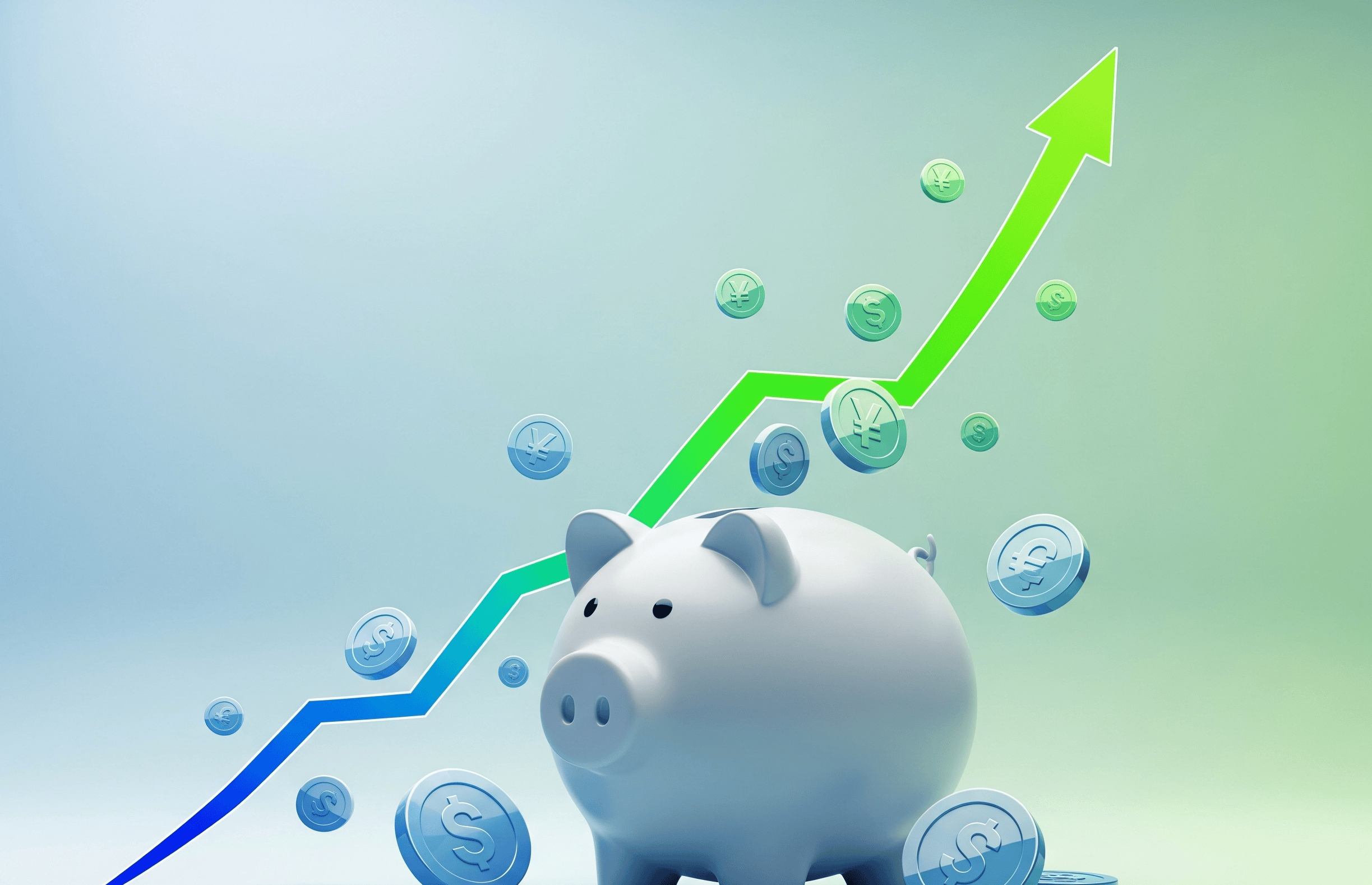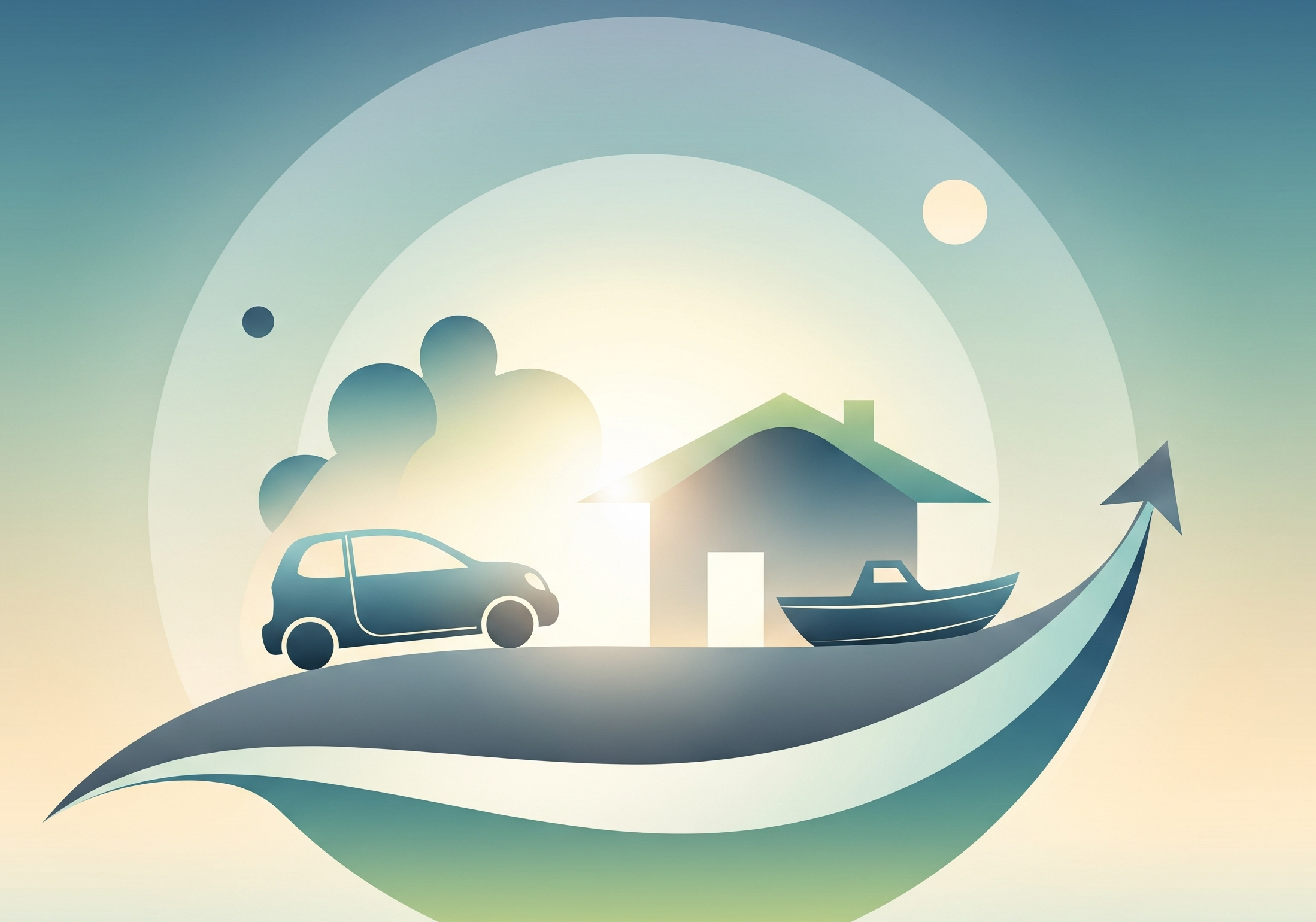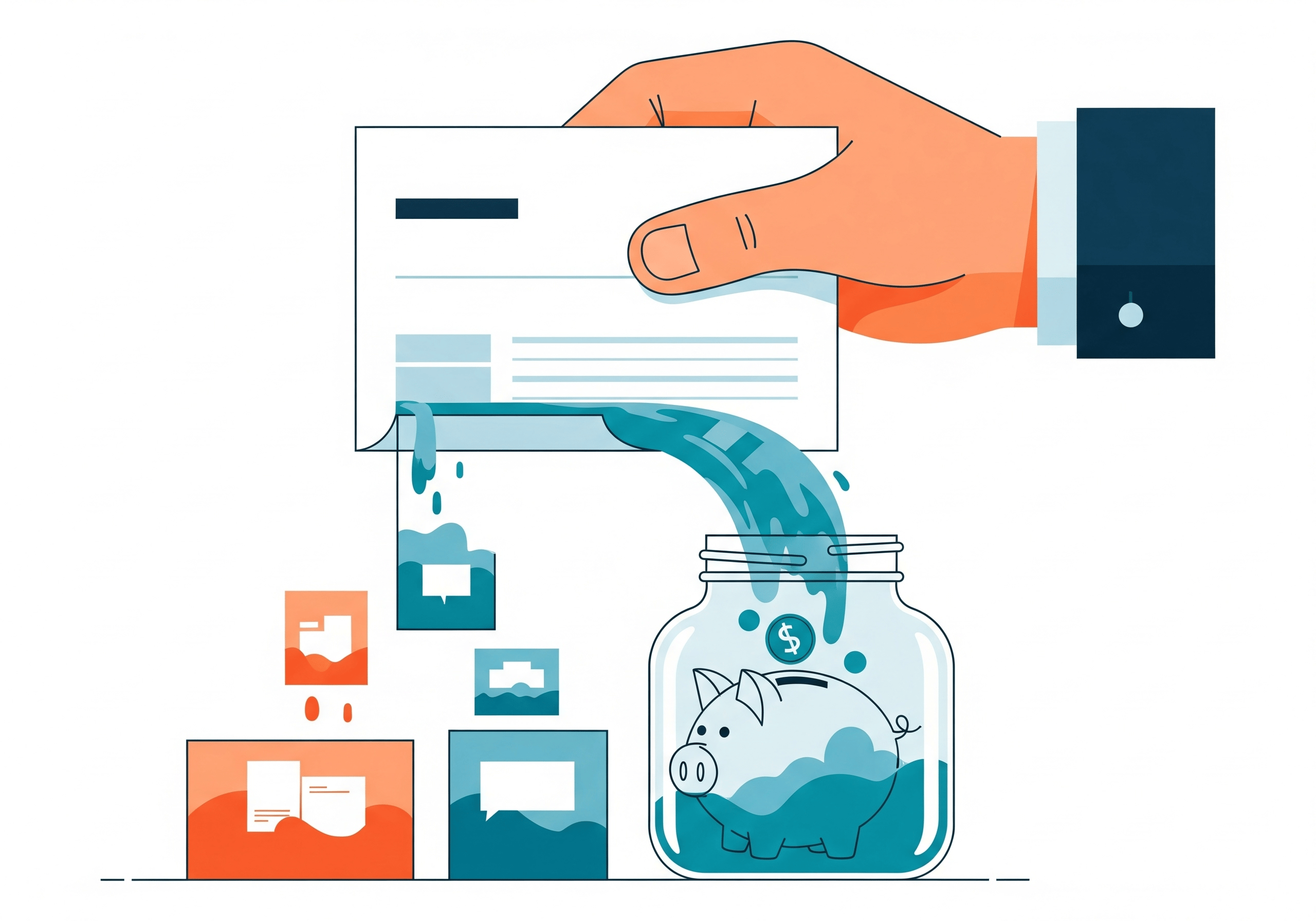Understanding the Average Savings Numbers
According to the most recent data from the Federal Reserve's Survey of Consumer Finances reported by Bankrate, the median savings account balance among Americans is about $8,000, while the average balance is much higher at $62,410. That gap tells us a lot: the average is skewed by a small number of high-income households with very large balances.
Recent research from Bankrate and LendingClub found that around 60% of Americans live paycheck to paycheck, and nearly 1 in 4 have no emergency savings at all.
What this means is that while some Americans have healthy savings, many don’t. It’s not just about income. It’s also about inflation, debt, and limited access to financial tools.
Why Most Americans Struggle to Save
Several factors contribute to low savings rates across the country. The first is the rising cost of living. According to the U.S. Bureau of Labor Statistics, consumer prices in categories like rent, groceries, and healthcare have risen faster than wages for many workers over the last decade.
Another key issue is high-interest debt, especially from credit cards. The Federal Reserve Bank of New York reports that Americans now hold over $1.21 trillion in credit card debt, which makes it hard to set money aside for savings.
Student loans also play a role. According to the Education Data Initiative, nearly 44 million Americans still hold federal student debt. For many, this creates monthly payments that compete directly with the ability to build an emergency fund or save for the future.
Emergency Funds vs. Long-Term Savings
When people talk about “savings,” they’re often mixing two very different goals:
- Emergency savings: Quick-access cash that helps cover unexpected expenses like car repairs or medical bills.
- Long-term savings: Money for bigger goals like buying a home, retirement, or building wealth.
According to Bankrate’s 2025 Annual Emergency Savings Report, experts typically recommend that every adult have three to six months of expenses saved in an emergency fund. Yet most Americans don’t meet that benchmark. In fact, the report shows that only 46% of American adults have enough emergency savings to cover three months of expenses.
The takeaway? Many people are saving, but not enough to weather even a short-term financial shock. And without that base, long-term savings becomes even harder to achieve.
How to Build Savings While Improving Your Credit
If you’re in that boat — living paycheck to paycheck with little savings — you’re not alone. But there are new tools designed specifically to help people build both savings and credit at the same time.
That’s where Cheers Credit Builder comes in. Cheers offers a unique solution: the money you pay is securely held in a Certificate of Deposit (CD). All monthly payment activities¹ are reported to all three major credit bureaus. Full savings return at the end of your term, minus interest. So, by the time you’ve built a better credit score, you also have savings waiting for you.
This approach works especially well for people who:
- Have no credit or low credit scores
- Want to build credit without a credit card
- Struggle to set aside savings on their own
Cheers charges a fixed 12.15% APR with no hidden fees². It works without a credit check — which makes it accessible for younger adults or new immigrants.
Smart Steps Toward Financial Security
If your savings account looks lower than you’d like, you’re not behind — you’re just part of the reality many Americans face. But that doesn’t mean staying stuck. Here are a few proven ways to move forward:
- Start small. Even $25 a month can grow over time and build good habits.
- Automate your savings. Tools like Cheers help automate progress so you don’t have to think about it.
- Prioritize high-interest debt. Pay off what costs you the most each month.
- Track your spending to find new opportunities to save.
- Use credit-building tools that double as savings plans.
Saving money while managing credit is hard, but combining the two can make the process easier, faster, and more rewarding.
This content is for informational purposes only and does not constitute financial advice. Please consult a licensed financial advisor or tax professional before making any financial decisions.
(The opinions expressed in this article are the author’s own and do not reflect the view of Sunrise Banks³.)
References:
- Bankrate – https://www.bankrate.com/banking/savings/savings-account-average-balance/#:~:text=yield%20savings%20accounts.-,How%20much%20does%20the%20average%20household%20have%20in%20savings?,outliers%20with%20high%20account%20balances.
- Bankrate –
https://www.bankrate.com/banking/savings/emergency-savings-report/ - Federal Reserve Survey of Consumer Finances
https://www.federalreserve.gov/econres/scfindex.htm - LendingClub –
https://ir.lendingclub.com/news/news-details/2023/Nearly-60-of-Credit-Cardholders-in-the-U.S.-Live-Paycheck-to-Paycheck/default.aspx - U.S. Bureau of Labor Statistics –
https://www.bls.gov/cpi/ - The Federal Reserve Bank of New York – https://www.newyorkfed.org/microeconomics/hhdc.html
- Education Data Initiative – https://educationdata.org/student-loan-debt-statistics
- Bankrate – https://www.bankrate.com/banking/savings/emergency-savings-report/#:~:text=Nearly%20a%20quarter%20of%20Americans,no%20emergency%20savings%20at%20all.
1 Payment Activity:
All payment activity is reported to the credit bureaus. On-time payments may help build your credit, while late or missed payments may negatively impact it. Results are not guaranteed and depend on your individual financial behavior and credit profile.
2 No Hidden Fees:
There are no application fees, maintenance fees, or early cancellation penalties.
³ Sunrise Banks:
Cheers is a financial technology company and not a bank. Banking services are provided by Sunrise Banks N.A. Your funds are FDIC insured up to $250,000 through Sunrise Banks, N.A., Member FDIC. Results are not guaranteed. Improvement in your credit score is dependent on your specific situation and financial behavior. Failure to make monthly minimum payments by the payment due date each month may result in delinquent payment reporting to credit bureaus, which may negatively impact your credit score. This product will not remove negative credit history from your credit report. All loans are subject to approval. Must be at least 18 years old, have a valid U.S. bank account, and a Social Security Number.



